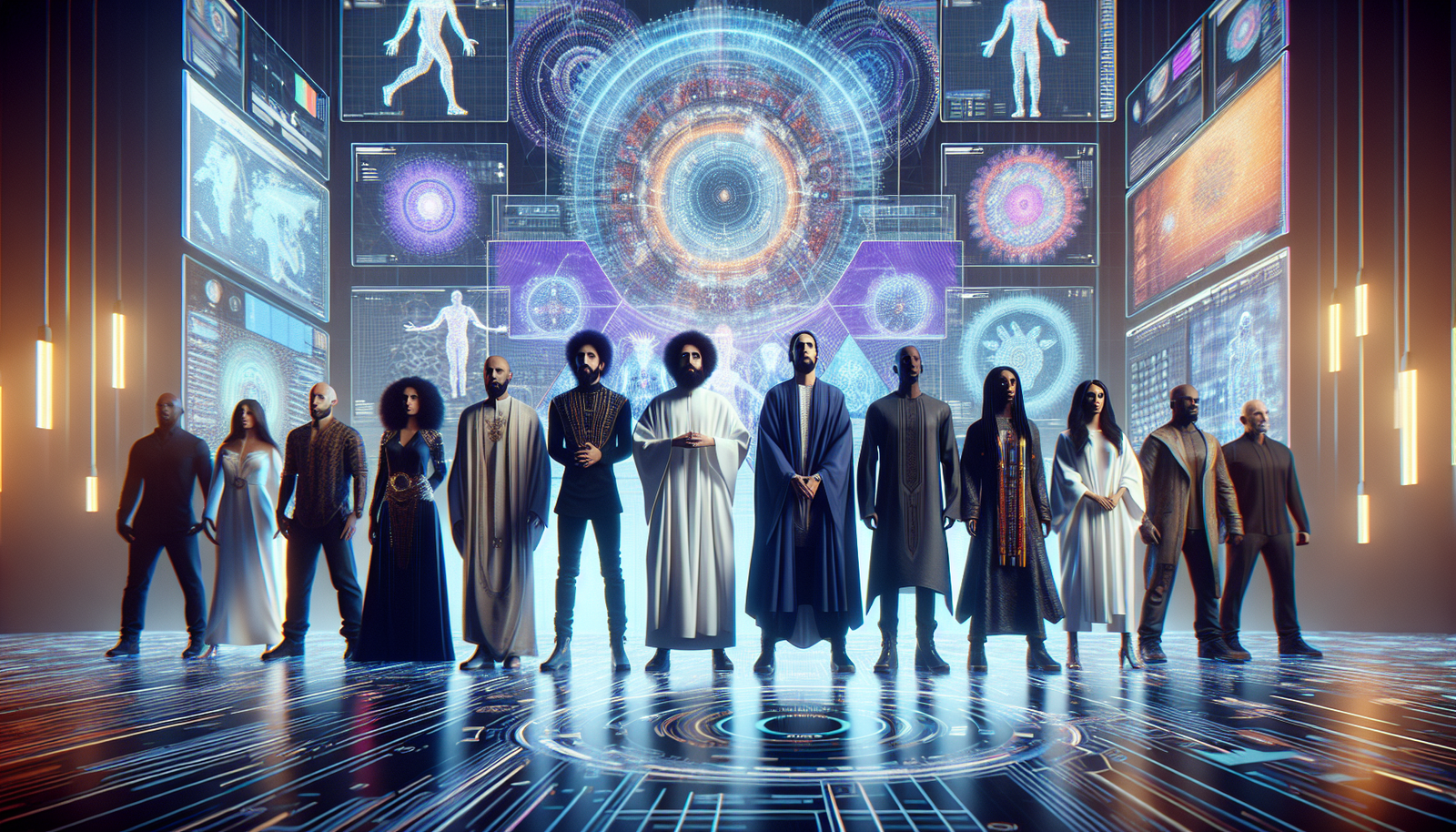The recent artificial intelligence projects of the British government are causing deep controversy within the performing arts. Creators, musicians, and artists are rising up against _the inappropriate use of their works_. They denounce an insidious threat to _the protection of copyright_, jeopardizing decades of innovation and creativity. The fear of the abusive exploitation of artistic creations by algorithms is prompting these leaders to form an unprecedented coalition. The alarm raised illustrates a desire to preserve the integrity of works and to imperatively reaffirm the predominant role of creators in the cultural ecosystem.
Warning from the leaders of the performing arts
As the artificial intelligence (AI) projects promoted by the British government approach, the leaders of the performing arts are joining their voices to express their concerns. This collective of artists, authors, and creators emphasizes the major risks these initiatives could pose to copyright. The effort aims to draw attention to the essential need for regulation that protects artists’ rights in the face of emerging technology.
Collection and exploitation of works
The issue of using artistic creations to train AI models is at the heart of the debates. Art professionals denounce the lack of compensation for the exploitation of their works. Consequently, this situation creates an imbalance between the value of creations and the profits drawn by technology companies. An urgent call has been made to establish a legislative framework ensuring that each use of protected works is subject to explicit consent and adequate remuneration.
Mobilization of the cultural sector
The cultural sector, facing this threat, is starting to organize. More than 34,000 artists, including iconic figures from music and cinema, have signed a petition. Their mobilization signals a categorical refusal to allow the scraping of their creations without remuneration. They highlight the fact that without their agreement, there can be no ethical development of AI.
Impact of government proposals
The government proposals, such as the artificial intelligence bill, raise deep fears within the artistic community. This text could facilitate unrestricted access to protected content, leading to a dilution of creators’ rights. The artistic circles thus warn of a lack of adequate protection in the digital age, posing an equity problem for creators.
The voices of international artists
World-renowned artists, such as Paul McCartney, share their concerns about plagiarism and the devaluation of human creativity. Additionally, other personalities are becoming spokespeople for this cause, claiming that AI companies must acknowledge and respect copyright. The convergence of these voices underscores a global movement calling for vigilance in the face of the rise of AI in the creative sector.
Toward fair regulation
Initiatives are beginning to emerge to establish regulations that protect creators. Artists want to see consultation processes appear between technology entities and copyright representatives. Thus, this proactive approach could help establish norms that constrain the use of AI in respecting existing works, thereby ensuring fair recognition for creators.
Conclusion of the mobilization
The struggle for the respect of copyright within the new digital ecosystem is intensifying. The union of artists and cultural organizations against abuses related to artificial intelligence represents the beginning of a determined campaign for the preservation of creativity. This issue questions the place of art in an increasingly technology-dominated world. Debates are multiplying, and vigilance remains essential to protect the interests of creators.
Frequently Asked Questions
What are the main risks to copyright related to AI according to the leaders of the performing arts?
The leaders of the performing arts fear that the UK government’s AI projects will exploit works protected by copyright without adequate remuneration, which could harm the recognition and income of creators.
How can artists protect their creations in the face of advancements in AI?
Artists can protect their creations by claiming clear copyright and partnering with organizations that advocate for the recognition of these rights in the context of AI.
Why is it essential to obtain permission from artists to use their works in AI projects?
It is essential to obtain permission from artists to ensure that their rights are respected and that they receive fair compensation for the use of their works, which is fundamental to maintaining the economic viability of the arts.
What impact could government AI projects have on different artistic sectors?
Government AI projects could lead to a decrease in income for artists, as works could be digitized and used without compensation, threatening the diversity and richness of artistic sectors.
How can artists and creators make their voices heard against abuses related to AI?
Artists and creators can make their voices heard by signing petitions, participating in demonstrations, and collaborating with organizations that defend creators’ rights in the face of challenges posed by AI.
What measures could the British government take to protect copyright in the context of AI projects?
The British government could adopt laws ensuring creators’ consent for the use of their works in AI systems and develop frameworks that ensure fair remuneration and respect for copyright.
What are the concerns of cultural organizations regarding the increasing use of AI?
Cultural organizations are worried about the impact of AI on artistic creation, particularly the possibility that works may be reproduced without a copyright glossary, which could lead to a depletion of culture.
How does current legislation protect artists against unauthorized uses of their works by AI?
Current copyright legislation offers some protections, but it must be updated to address the complexity of AI technologies to ensure that artists are properly compensated and their rights are respected.






